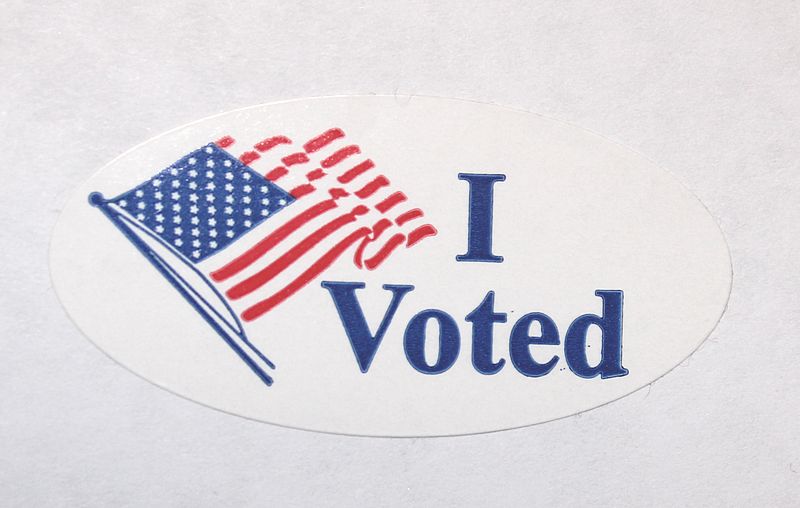What to expect on Election Day... and beyond
Here’s some closing thoughts about this week’s election. (And yes, Election Day is Tuesday, despite what “Laura Ingraham” may tell you.) Three big questions:
1. Is the Blue Wave a thing?
Observers are predicting big gains for the Democratic Party in this year’s Congressional mid-term elections — so big, in fact, that Democratic House leader Nancy Pelosi guaranteed that her party would take back the House. While that’s a dangerous move to make in karmic terms, I do think the Blue Wave is real.
Anecdotal evidence is mounting, with too many stories of first-time Democratic voters and motivated Democratic volunteers to ignore. Plus, while polls have shown tight Congressional races all across Virginia, I think polling in general has still not caught up to the force of the anti-Trump resistance, as well as how Trump is both energizing certain parts of his base while de-energizing other traditional Republican constituencies. So what I wrote last year still applies: “no one has any idea who a ‘likely voter’ is in post-Trump America.”
Does polling matter? Not so much for your vote. You should vote! Democratic participation can be a transformative experience no matter the outcome -– plus, once in a while, one vote DOES make a difference! (Just ask the Blue Bowl.)
Polling DOES matter, however, for national party leaders and, sometimes, donors and advocacy groups –- they need to know where to direct their limited resources in national elections. It’s telling, for example, that both parties pulled planned advertising buys in the Virginia 10th; they all think that race is already over, although only the Dems are happy about it.
2. So what happens in Virginia?
If the election goes the Democrats’ way, it will certainly matter here in Virginia, which seems to become more of a blue state every minute. Again, this is largely the result of changing demographics, as the state population tilts more towards urban and suburban population centers and voters become more diverse. Even that local bastion of Republican support, Chesterfield County, is more developed and suburban than it was a few short years ago. Republican Dave Brat can no longer count on huge margins from conservative whites in a rural-ish county delivering him victory.
So while I try to avoid political predictions (a lesson that Brat taught me after his upset win in 2014), it seems likely that pro-Democratic Party demographics plus anti-Trump fervor should lead to victories for Abigail Spanberger in the 7th District, Jennifer Wexton in the 10th, and even Leslie Cockburn’s bid for the open seat in the 5th. (If Elaine Luria defeats Scott Taylor in the 2nd District, that would mean a HUGE night for the Democrats; Taylor doesn’t face the same demographic challenges as do his fellow GOP incumbents.)
As was the case with the state legislative races last year, local elections continue to be shaped –- and maybe even determined –- largely by national forces. You might have some sympathy for the Republican members of Congress if they are ousted this week; many of them didn’t ask for Trump to be elected, and supporters could argue they don’t deserve to be voted out of office. (Although it would be hard to find any sympathy for Dave Brat, who has done as much as anyone to nationalize this election; if you listen to him, you’d think he was running not against Spanberger, but Nancy Pelosi.)
3. What happens next?
It’s not too early to think beyond the current election – at least not in Virginia, where it’s always election season.
No matter what happens on Tuesday, there will be significant consequences for the state legislative races next year. If Wexton ascends to Washington, there will be a special election to fill her spot in the State Senate; same thing with Republican Delegate Ben Cline, who is likely to win the 5th District race. Their state legislative districts are relatively “safe” for both parties, but with razor-thin Republican majorities in both Virginia houses, no one will take anything for granted.
Plus, as I noted for Virginia Capital Connections magazine last month, this year’s election for national office could influence the state agenda. Democratic victories last fall forced Virginia Republicans to compromise on Medicaid expansion; would a continued Blue Wave put other issues like marijuana decriminalization or even gun control on the table here in Richmond?
This year’s race also may affect the Governor’s office. (H/t to the RTD’s Andrew Cain for this point.) Virginia’s one-term limit for Governors means that we always need to think about who might be next! There won’t be any change on the Democratic side, where the party should choose between Lt. Governor Justin Fairfax or, more likely, Attorney General Mark Herring. On the Republican side, though, how would a strong victory in the 1st District for incumbent Rob Wittman, plus an expected big defeat for Republican Senate candidate Corey Stewart, shape the next Republican primary? Will Wittman and other “establishment” candidates find the evidence they need to resist the siren call of the extremism that has characterized Stewart’s campaign, and that Ed Gillespie felt so powerless to resist?
One final consequence going forward: no matter the outcome this year for VA Dems, they are building both momentum and infrastructure that can help in future elections. This year’s volunteers can become next year’s campaign managers, field organizers, and even candidates. The Blue Wave may fall short of a Democratic takeover of Congress this year; but it’s more likely than ever to lead to a Democratic state legislature in VA next year.
Vote!

